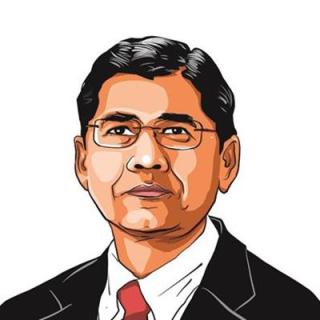Righting reservation
New amendment undoes some of the Mandal flaws. But it will not address the merit argument.

The Constitution (124th Amendment) Bill, 2019, amends Articles 15 and 16 to enable Parliament and all states to make “special provisions” for the advancement of “any economically weaker sections” of citizens (EWS). A maximum of 10 per cent of reservation in educational institutions can now be made; private schools and colleges are included, but those run by minorities are excluded. And 10 per cent of the appointments and posts can also be reserved for the EWS. An explanation has also been added that enables the Centre and the States to notify the family income and other indicators of economic disadvantage to determine the EWS class. Thus, each state is at liberty to prescribe different income limits and other factors, but it is likely that the income limit will be based on what constitutes a “creamy layer” for backward classes.
The fact that only three MPs opposed this Bill is sufficient political acknowledgement of the seething anger against the direct and indirect manner in which reservations in education and appointments have, in reality, far-exceeded the limit of 50 per cent, as prescribed by the Supreme Court in the Indra Sawhney case — popularly called the Mandal case.
The first Backward Class Commission, headed by Kaka Kalekar, submitted its report on March 30, 1955, specifying factors that should be taken into account for classifying a community as a “backward class”. This report was never implemented. In 1961, the central government wrote to all the state governments expressing its view that it would be better to apply the economic test rather than caste for reservation. In a letter sent to all the chief ministers on June 27, 1961, Pandit Nehru observed: “The only real way to help a backward group is to give opportunities of good education. But if we go in for reservations on communal and caste basis, we swamp the bright and able people and remain second-rate or third-rate. I am grieved to learn of how far this business of reservation has gone based on communal consideration. It has amazed me to learn that even promotions are based sometimes on communal or caste considerations. This way lies not only folly, but disaster”.
The Mandal Commission report of 1980 relied almost exclusively on caste for reservation in government jobs. The manner in which it identified 3,743 castes as backward was seriously flawed. In each district, only two villages and one urban block were taken into consideration. Thus, only 0.06 per cent of the total villages were surveyed. Out of the 3,743 castes, only 406 were subjected to any socio-educational field survey. Thus, 90 per cent of backward castes were included without any survey and these castes have continued to enjoy the benefits of reservation — and it is politically impossible to delete a caste from the backward list.
The Commission relied on the 1931 census for computing the percentage of backward classes, ignoring the fact that the India of 1931 included Pakistan, Bangladesh and Burma. This report was implemented by an “office memorandum” on August 13, 1990, by Prime Minister V P Singh as a political counter-attack on Devi Lal, leading to widespread agitation. It was soon challenged and, despite these fatal flaws, six out of nine judges upheld this report and the 27 per cent reservation for the 3,743 castes in 1992. As a conciliatory measure, the newly elected coalition government, with Narasimha Rao as the PM, came out with another “office memorandum” dated September 25, 1991, which modified the earlier memorandum, providing an additional 10 per cent reservation for other economically backward sections of society, who were not covered by the existing schemes of reservation. This additional 10 per cent was struck down by the SC as there was no constitutional basis.
Although the SC upheld the 27 per cent quota, it made it clear that the reservations should be confined to initial appointments, and not extended to promotions. The court also placed a cap of 50 per cent as the maximum limit for making reservations for backward classes. But even these safeguards were short-lived as the Constitution was repeatedly amended to permit reservations at the stage of promotion and also for consequential seniority.







































No hay comentarios:
Publicar un comentario